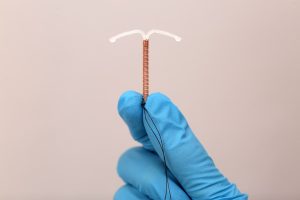Navigating the world of birth control to effectively prevent unwanted pregnancy is a vital step in taking control of one’s reproductive health. With a myriad of options to explore, understanding the ins and outs of each method is essential. In this article, we plunge into the fascinating realm of intrauterine contraception, spotlighting Mirena, a widely regarded hormonal IUD (Intrauterine Device).
Not only is birth control indispensable for shaping our family lives and safeguarding our health, but it also empowers women to chart the course of their reproductive journeys. From trusty condoms to easy-to-swallow pills, an array of birth control methods caters to our diverse needs. IUDs, though, have emerged as a celebrated player, striking a chord with those seeking a dependable, long-acting solution.
Harnessing the power of the levonorgestrel intrauterine device (IUD), Mirena functions as a birth control maestro orchestrating hormonal symphonies within the uterus. This discreet maestro takes up residence for up to 7 years, granting enduring contraception. Mirena’s gentle yet potent release of levonorgestrel bestows numerous perks, including the coveted combination of high effectiveness and convenience. In the first seven days after insertion, Mirena unfurls its birth control magic, allowing you to relish intimacy without fear of an unexpected pregnancy.
Scientific research has lauded hormonal IUDs like Mirena and Kyleena for their unparalleled prowess in both preventing pregnancy and yielding long-term contraception advantages. At the heart of these benefits lie IUDs’ ease of use, supreme effectiveness, and minimal need for user-dependent compliance. The study underlined how Mirena, in particular, stands as a safe and reliable birth control ally for women desiring lasting contraception.
Deciphering the complex world of IUDs is akin to unlocking the secrets of science. The astoundingly persistent contraceptive effect of IUDs lingers even after removal. So, join us as we delve into the thrilling domain of IUDs, unravel the science cocooning this birth control phenomenon, and uncover the reasons you might select an IUD for your contraception strategy.
Overview — What is Mirena?
Hormonal IUDs have changed how birth control works, and Mirena is one that prevents pregnancy conveniently and effectively. Mirena is inserted into the uterus and stays there for up to 7 years, providing long-lasting contraception without daily reminders or frequent doctor visits.
As a hormonal IUD, Mirena releases a steady and low dose of a hormone called levonorgestrel directly into the uterus. This hormone thickens the cervical mucus, making it hard for sperm to reach and fertilize the egg. It also thins the uterus lining, making it less likely for a fertilized egg to implant. These two actions significantly reduce the chances of pregnancy.
One of the significant advantages of Mirena is its long-lasting effectiveness. With a simple insertion procedure, Mirena offers a fuss-free, highly effective birth control option. The Mirena cost is justified as it provides continuous protection against pregnancy for up to seven years. The IUD can be removed anytime within these seven years if needed. This is an additional way to prevent pregnancy, and it is straightforward to use, which makes it appealing to people who prefer a “set it and forget it” method of birth control.
Mirena also offers additional benefits beyond contraception. For women who have multiple sexual partners, it is an effective method. In cases of heavy menstrual bleeding in women, it helps reduce the severity, making it a valuable choice for those with medical advice about side effects. Stay tuned as we decode this exceptional IUD further.
Understanding The Mirena IUD: A Deeper Look
Using Mirena for birth control stands out as one of any woman’s best options. Women who choose an IUD appreciate its simplicity. Unlike birth control pills that need to be taken every day, Mirena remains in place, steadily releasing a low dose of hormone levonorgestrel. This eliminates the need for daily reminders or concerns about missing doses.
Moreover, Mirena is discreet and hassle-free. Once inserted, you can easily know the IUD is still in place and forget it’s there while enjoying the freedom from the stress of an unplanned pregnancy. It is a popular option for women who want a get-the-IUD-and-forget birth control method that does not require constant maintenance.
While Mirena offers numerous positives, including fewer missed periods, being aware of potential negative side effects, like problems from pain from an IUD insertion and bleeding between periods, is crucial. The side effects of Mirena can be reported to the FDA. Most people using this device do not experience serious side effects, but if you feel pain after getting the IUD inserted, it’s important to get medical help immediately. It’s crucial to discuss any concerns or possible side effects with a healthcare provider and report them promptly. So, should you get Mirena? You may report side effects, and if you’ve given birth before, it’s crucial to calculate the risks and see if they outweigh the benefits.
Insertion Of The Mirena IUD: The Process
If you’ve decided that Mirena is the right birth control for you, understanding the insertion process can help alleviate any concerns. When you visit a professional gynecologist, such as Dr. Susan Fox Center for Women, a skilled healthcare provider will guide you through the following steps.
During the Mirena insertion procedure, you will be positioned as you would be during a pelvic exam. The healthcare provider will gently insert a speculum into your vagina to visualize the cervix. They will clean the area to ensure proper hygiene.
Next, a specialized inserter containing the Mirena IUD will be carefully placed through the cervix and into the uterus. During this step, you may experience mild discomfort similar to menstrual cramps. However, the procedure is typically quick and well-tolerated.
After the Mirena is correctly positioned, the inserter is removed, leaving the IUD in place. The strings attached to the IUD will be trimmed to an appropriate length. These strings allow for easy removal of the IUD when desired and serve as a way to check if the device is still properly positioned in the uterus.
Following the insertion, it is common to experience some cramping and spotting. These symptoms usually subside within a few days. It’s important to follow the post-insertion instructions provided by your healthcare provider, which may include refraining from sexual activity or using a backup form of contraception for a certain period.
If you’re worried or have strong pain, heavy bleeding, or signs of infection after the procedure, contact your doctor immediately. They are there to provide guidance and support.
Simple and sure – that’s the Mirena Way of preventing pregnancy! Stay tuned for what’s next on this unique IUD.
How Does Mirena Work as Contraception?
Mirena breaks the birth control game with science. Anchored snugly in your uterus, this hormonal IUD slowly releases levonorgestrel – a progestogen also used in birth control pills – making your womb a battleground unfit for sperm.
Unlike copper IUDs which kill sperm, Mirena barricades the cervix with thick mucus and thins the uterine lining, plundering every chance of pregnancy. Your body feels the effects of Mirena, not any hassles of using an IUD. It’s a masterstroke of intrauterine contraception!
Have you ever heard of Kyleena? It’s Mirena’s sibling, providing the contraception benefits but with lesser hormone release. But remember, while both Mirena and Kyleena offer effective birth control, it’s essential to discuss possible side effects with a healthcare professional, such as Dr. Susan Fox Center for Women, to discuss your individual needs, medical history, and receive personalized advice regarding the suitability of either as your preferred method of birth control.
Longevity and Efficiency: Using an IUD for Birth Control Over the Years
Want to stay worry-free for years? Mirena is your dependable guardian, shielding you for up to 7 years once placed in your uterus. The hormonal IUD works overtime, maintaining impressive efficiency throughout its lifespan.
How efficient is Mirena birth control after seven years? With over 99% effectiveness, this intrauterine device is among the top dogs of contraception, preventing pregnancy with unyielding resolve. Women who choose Mirena love how its steadfastness keeps accelerating toward their goal.
Skeptical? Trust the numbers. Mirena has a proven track record, and its efficiency never wanes. Those who desire long-term birth control can cherish this steadfast ally.
Dr. Susan Fox Center for Women, a reputable gynecologist company, understands the importance of providing women with reliable and effective birth control options like Mirena. Their expertise and commitment to women’s reproductive health make them an excellent resource for exploring and choosing the right contraceptive method.
Potential Risks: Possible Side Effects of Using Mirena
Although most women tolerate Mirena well, it’s essential to know about the possible side effects of using it as a hormonal IUD for birth control.
Common side effects of using Mirena for birth control include changes in bleeding patterns, such as irregular or heavy periods or even lighter or no periods. Some women may experience spotting or breakthrough bleeding between periods, especially during the initial months after insertion. These changes are usually temporary and tend to improve over time.
Weight gain is another possible side effect that some women may experience while using Mirena. It’s important to note that weight changes are typically minor and can vary from person to person.
Fear that Mirena may affect future fertility? Relax; your chance to get pregnant rebounds fast once the IUD is removed. Most women can conceive within a year of removal. Nonetheless, don’t hesitate to engage with a healthcare provider regarding any distinct concerns or queries about fertility following Mirena use.
Know this: Mirena may have side effects, but the benefits often outweigh the potential risks. Don’t ignore or downplay symptoms though – serious side effects, though rare, need immediate medical attention.
Suppose you experience any side effects or have concerns while using Mirena. In that case, it’s essential to seek medical advice from your healthcare provider or contact the Dr. Susan Fox Center for Women, a trusted gynecologist, to discuss your situation.
Interactions: What Can Interact With Mirena?
While Mirena is highly effective as birth control, it’s important to know potential interactions that may affect its effectiveness. Some medications and medical conditions can affect how well Mirena prevents pregnancy. Make sure to tell your healthcare provider about any medications you take or any medical conditions you have. This is important because it can affect how Mirena performs. Certain antibiotics, anticonvulsants, and herbal supplements may interfere with Mirena’s hormonal release or placement within the uterus.
Moreover, specific health conditions like pelvic inflammatory disease or infections in the reproductive system can impact how well Mirena works. These conditions can increase the risk of complications or affect the device’s ability to prevent pregnancy.
To ensure the optimal performance of Mirena, it is vital to have regular check-ups and consultations with your gynecologist. They can provide personalized advice and guidance on using Mirena effectively while considering your circumstances.
With Mirena, interaction is a two-way street; not all pals are welcome. Acknowledging possible interactions is serious business when you’re aiming to prevent pregnancy. Play it safe, speak up, and stay protected.
Why Women Choose Mirena for Birth Control
Mirena is a popular option for birth control. It’s small, easy to take care of, and dependable. Inserted into the uterus, this hormonal intrauterine device gradually releases hormones, preventing pregnancies with mind-blowing efficiency.
Why do women choose Mirena? The IUD offers long-term contraception with little room for user error: no daily pills, non-invasive procedures. Plus, once it’s done, you can almost forget about it. Still, everybody is unique. Mirena might bear the crown, but remember; it’s not one-size-fits-all. Consult a healthcare professional, and weigh the benefits against your needs and lifestyle.
Dr. Susan Fox Center for Women is dedicated to providing expert guidance and high-quality care regarding your reproductive health. Their experienced gynecologists can assist you in discovering the advantages of Mirena and deciding if it’s the suitable birth control method for you.
Remember, informed decision-making is key, and reaching out to professionals who understand your unique needs can make all the difference in your reproductive health journey.
If you want a dependable birth control option that lasts a long time and is easy to use, think about choosing Mirena. Schedule a consultation with Dr. Susan Fox, Center for Women, to discuss your options and make an informed choice. Make your contraceptive choice a meaningful one.








